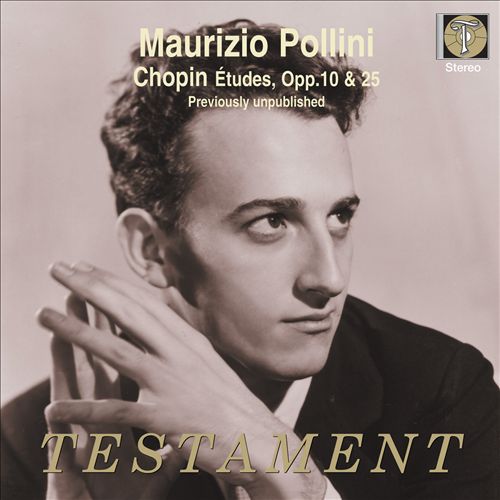Logowanie
Dlaczego wszystkjie inne nie brzmią tak jak te?
Chai Lang, Fan Tao, Broadcasting Chinese Orchestra
Illusive Butterfly
Butterly - motyl - to sekret i tajemnica muzyki chińskiej.
SpeakersCorner - OSTATNIE!!!!
RAVEL, DEBUSSY, Paul Paray, Detroit Symphony Orchestra
Prelude a l'Apres-midi d'un faune / Petite Suite / Valses nobles et sentimentales / Le Tombeau de Couperin
Samozapłon gwarantowany - Himalaje sztuki audiofilskiej
PROKOFIEV, Stanislaw Skrowaczewski, Minneapolis Symphony Orchestra
Romeo and Juliet
Stanisław Skrowaczewski,
✟ 22-02-2017
BARTOK, Antal Dorati, Philharmonia Hungarica
Dance Suite / Two Portraits / Two Excerpts From 'Mikrokosmos'
Samozapłon gwarantowany - Himalaje sztuki audiofilskiej
ENESCU, LISZT, Antal Dorati, The London Symphony Orchestra
Two Roumanian Rhapsodies / Hungarian Rhapsody Nos. 2 & 3
Samozapłon gwarantowany - Himalaje sztuki audiofilskiej
Winylowy niezbędnik
ClearAudio
Cartridge Alignment Gauge - uniwersalny przyrząd do ustawiania geometrii wkładki i ramienia
Jedyny na rynku, tak wszechstronny i właściwy do każdego typu gramofonu!
ClearAudio
Harmo-nicer - nie tylko mata gramofonowa
Najlepsze rozwiązania leżą tuż obok
IDEALNA MATA ANTYPOŚLIZGOWA I ANTYWIBRACYJNA.
Wzorcowe
Carmen Gomes
Celebrating the art and spirit of music - vol. 5 - Reference Songs
- CHCECIE TO WIERZCIE, CHCECIE - NIE WIERZCIE, ALE TO NIE JEST ZŁUDZENIE!!!
Petra Rosa, Eddie C.
Celebrating the art and spirit of music - vol. 3 - Pure
warm sophisticated voice...
SAMPLER - STS DIGITAL, Gregor Hamilton
Celebrating the art and spirit of music - vol. 2 - Love songs from Gregor Hamilton
...jak opanować serca bicie?...
SAMPLER - STS DIGITAL
Celebrating the art and spirit of music - vol. 1 - Leonardo Amuedo
Największy romans sopranu z głębokim basem... wiosennym
Lils Mackintosh
Celebrating the art and spirit of music - vol. 4 - A Tribute to Billie Holiday
Uczennica godna swej Mistrzyni
CHOPIN, Maurizio Pollini
Etudes, Opp.10 & 25
wcześniej niepublikowane!
AllMusic Review by Patsy Morita [-] Shortly after 18-year-old Maurizio Pollini won the 1960 Chopin Competition, EMI gave him a contract and they recorded Chopin's Piano Concerto No. 1. Pollini then recorded the two sets of etudes, Op. 10 and Op. 25, that same year, but would not let EMI release the recording, partly because he did not want to be pigeonholed as an interpreter of just Chopin. Of course, he would later go on to record all of Chopin's music for Deutsche Grammophon with great acclaim, doing the etudes in 1972. In 2012, the Testament label remastered those original EMI tapes. The natural assumption is that the 1960 version is musically not as mature as the 1972 version, and that seems to be borne out in the slower tempo etudes. In these earlier versions, Pollini seems slightly more indulgent in the phrasing and use of rubato, but the effect is quite pleasant, not sappy. In fact, Etude No. 9 in 1972 is almost too intensely passionate in comparison to what it is here. Etude No. 8 is brisker, almost brusque, and Nos. 17 and 21 are more playful because his articulation is crisper than it would be in the later version. (Pollini did study with Arturo Benedetto Michelangeli -- another great interpreter of Chopin -- in the intervening years.) The other great difference between the two recordings is the sound quality. The EMI version, as remastered by Testament, is less resonant, much more intimate than the DG recording. The "Revolutionary" Etude (Op. 10/12) is, therefore, not as visceral or immediately felt -- although it, and the last two of Op. 25 also, isn't any less exciting -- but it makes Etudes Nos. 13-15 (the first three of Op. 25) sound sweeter. It's always interesting to compare the same works at different times in a performer's career, and in this case both are eminently recommendable and enjoyable for different reasons.
























